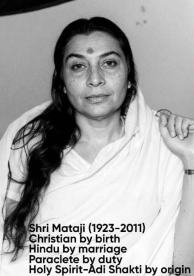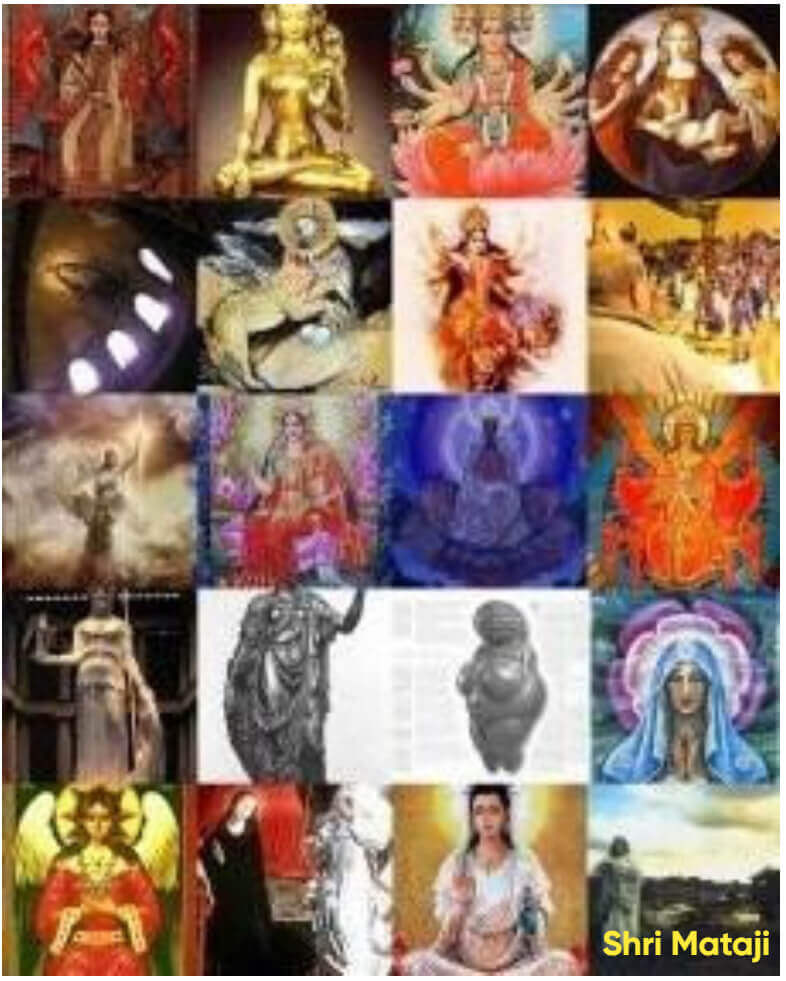The Divine Feminine and the Universal Mother
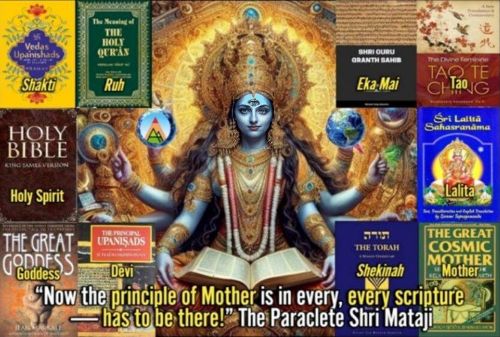
This article explores how Taoism uniquely honors the Divine Feminine as the eternal Mother of all creation. Lao-Tzu’s Tao Te Ching describes Tao as “the mysterious female,” “the valley spirit,” and “the mother of Heaven and Earth.” Unlike patriarchal traditions, Taoism centers wisdom, power, and creation in the feminine principle. The Tao’s nurturing essence aligns with Devi in Hinduism, Shekhinah in Judaism, Ruha d’Qudsha in Christianity, Eka Mai in Sikhism, and Ruh in Islam. These are not separate truths but different names for the same universal Mother—the omnipresent, compassionate force that sustains all life.

The Feminine Essence of Tao
Lao-Tzu, in the Tao Te Ching, refers to Tao as “the mysterious female,” “the valley spirit,” and “the mother of Heaven and Earth” (Chapter 6). Unlike a personal deity, Tao is eternal, omnipresent, and boundless, yet it nourishes, protects, and generates everything in existence.
“The mystery of the valley is immortal;
It is known as the Subtle Female.
The gateway of the Subtle Female
Is the source of Heaven and Earth.”
(Tao Te Ching, Chapter 6)
This profound feminine imagery reveals a non-dominating, fluid, and all-pervading presence—not a force that imposes, but one that nurtures, embraces, and harmonizes.

The Mother of All Things
Taoism's deep reverence for the feminine principle is evident in its contrast to patriarchal religious structures. Lao-Tzu teaches that true power lies not in control, but in yielding; not in dominance, but in receptivity.
“Know the male,
Hold to the female;
Become the world’s stream.”
(Tao Te Ching, Chapter 28)
Taoism recognizes that all creation comes from the feminine source, just as all life is born from the womb. Lao-Tzu exalts the female as the Mother, making clear that without the feminine, existence itself is incomplete.
“The beginning of the world
May be regarded as The Mother of the world.
To apprehend The Mother, Know the offspring.
To know the offspring
Is to remain close to The Mother.”
(Tao Te Ching, Chapter 52)
Unlike traditions that place a male God as the Creator, Taoism acknowledges that life itself arises from the Great Mother, who remains immanent in all beings.
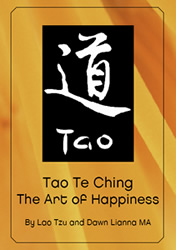
Tao and the Divine Feminine Across Traditions
The concept of the Divine Feminine as the ultimate source of creation is not exclusive to Taoism. Across world religions, we find striking parallels:
- Hinduism – Devi (Brahman) is the ultimate cosmic power, the Adi Parashakti, from whom all gods and goddesses emerge. Like Tao, Devi is both formless (Nirguna) and with form (Saguna).
- Christianity – The Holy Spirit has traditionally been rendered masculine, but in Jesus’ original Aramaic, the Holy Spirit is Ruha d’Qudsha, a distinctly feminine word. Like the Tao, the Holy Spirit is a guiding presence, an unseen force that nurtures, illuminates, and sustains.
- Judaism – The Shekhinah, the indwelling presence of God, is often depicted as feminine. She is the compassionate motherly presence of the Divine, much like the Tao.
- Sikhism – The Eka Mai or One Mother in Sikh tradition represents the creative and sustaining force of the universe.
- Islam – While Islamic theology often refers to Allah in masculine terms, the Ruh (Spirit) is gender-neutral and bears striking similarities to the Tao as the unseen, all-encompassing force that sustains life.
Tao as the Universal Mother
“The valley spirit never dies.
It is the unknown first mother,
Whose gate is the root
From which grew Heaven and Earth.”
(Tao Te Ching, Chapter 6)

This verse confirms what other traditions also affirm: the Tao is the eternal Mother, the source of all creation, and the force that nourishes and sustains everything in existence.
This universal understanding of the Divine Feminine as the primordial, boundless, and omnipresent force can be seen woven into every major spiritual tradition. While many religious traditions have gradually suppressed or obscured this truth, Taoism has uniquely preserved and exalted it.
Thus, it is evident that among all the world’s religions, the teaching of Lao-Tzu is by far the most female, not only in symbolism but in its deepest metaphysical truths.
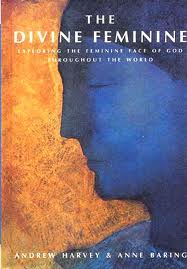
Conclusion
Taoism does not merely acknowledge the feminine; it honors it as the highest reality. In contrast to traditions that impose a male-dominated worldview, Taoism centers creation, wisdom, and power in the feminine principle.
By recognizing Tao as the Divine Mother, we see its alignment with Devi in Hinduism, the Holy Spirit in Christianity, Ruha d’Qudsha in Jesus’ teachings, Shekhinah in Judaism, Eka Mai in Sikhism, and Ruh in Islam. These are not different truths but different names for the same ultimate reality—the nurturing, sustaining, and omnipresent Divine Feminine.
The Tao never imposes but embraces. It never dominates but nurtures. It never forces but flows. It is the eternal Mother, the sanctuary where all things find refuge, the unseen force from which all things arise.
Understanding and embracing this truth is not only a spiritual revelation—it is the path to harmony, balance, and true enlightenment.
Pariah Kutta (https://adishakti.org)OpenAI. (2025). ChatGPT [Large language model]. https://chatgpt.com
Related Articles:
THE GREAT MOTHER
The Divine Feminine in China
The Indian Religion of Goddess Shakti
The Divine Feminine in Biblical Wisdom Literature
The Feminine Spirit: Recapturing the Heart of Scripture
Islam and the Divine Feminine
Tao: The Divine Feminine and the Universal Mother
The Tao as the Divine Mother: Embracing All Things
The Tao of Laozi and the Revelation of the Divine Feminine
Doorway of Mysterious Female ... Within Us All the While
The Eternal Tao and the Doorway of the Mysterious Female
Divine Feminine Remains the Esoteric Heartbeat of Islam
Holy Spirit of Christ Is a Feminine Spirit
Divine Feminine and Spirit: A Profound Analysis of Ruha
The Divine Feminine in Sufism
The Primordial Mother of Humanity: Tao Is Brahman
The Divine Feminine in Sahaja Yoga
Shekinah: She Who Dwells Within
Shekinah Theology and Christian Eschatology
Ricky Hoty, The Divine Mother
Centrality of the Divine Feminine in Sufism
A God Who Needed no Temple
Silence on (your) Self
The Literal Breath of Mother Earth
Prophecy of the 13 Grandmothers
Aurobindo: "If there is to be a future"
A Comprehensive Comparison of Religions and Gurus

